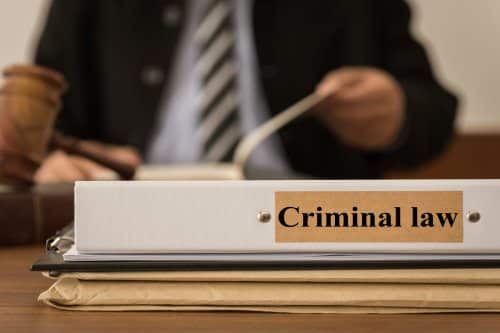If you have been charged with a crime in South Carolina, you have the right to testify in your own defense at your trial. But, while you can testify at your trial, this does not necessarily mean that you should take the stand. Although testifying can help in some cases, it can also be very risky. As a result, before deciding to proclaim your innocence before the jury in open court, you need to seek the advice of an experienced criminal defense attorney.
As a Criminal Defendant in South Carolina, You Have the Right to Testify
As a defendant in South Carolina’s criminal justice system, whether you choose to testify is completely up to you. The U.S. Supreme Court has interpreted the Fifth, Sixth, and Fourteenth Amendments to the U.S. Constitution as guaranteeing defendants the right to testify if they choose to do so. As a defendant, you can also waive your right to testify—and this is one right that it will make sense to waive in many cases. As we discuss in greater detail below, you open yourself up to cross-examination by the prosecution if you testify. Various other concerns will make testifying on your own behalf ill-advised in many cases.
What are the Risks of Testifying at Your Own Criminal Trial?
In our experience, most people who want to testify in their own defense fall into one of two categories—either (i) they believe they are innocent and want to tell the jury the truth, or (ii) they are concerned that waiving their right to testify will make them look guilty.
However, several considerations go into deciding whether to testify, and the decision is not nearly as straightforward as it may initially seem. This is true, regardless of your innocence or guilt. For example, some of the risks of testifying at your own criminal trial in South Carolina include:
1. Jurors Might Think You are Lying
Even if you are 100% convinced that you are innocent, the jurors who decide your fate still might not believe you. Unfortunately, despite the protections built into the jury selection system, many jurors are still biased toward believing that someone who is on trial is more likely to be guilty than innocent. So, no matter how well you represent yourself on the witness stand, and no matter how compelling a story you tell, there is still a chance that members of the jury will question your integrity. If they decide that you are lying, then your decision to testify could end up harming your chances of avoiding a conviction.
2. Your Words Might Not Come Across as You Intend
Even if everyone on the jury believes you, your words might not come across as you intend. For example, you might think you are presenting an effective case for why you should walk free, but members of the jury might interpret your words differently. If you are going to testify, you need to be certain of what you are going to say, and you need to be as certain as possible that the jurors will understand and accept your point of view.
3. You Might Slip Up and Say the Wrong Thing
Testifying in court can be stressful even when you are simply a witness in someone else’s trial. When you face months or years of incarceration, taking the stand can be an extremely high-stress ordeal. As a result, in many cases, defendants slip up and say the wrong thing. They get nervous, flustered, or lose their train of thought, and they say things that they never intended to say. While some mistakes can be corrected, it will not be possible to erase what was said from the jurors’ minds in many cases.
4. If You Testify in Your Defense, the Prosecution Can Cross-Examine You
Finally, and most importantly, in many respects, if you choose to testify in your own defense, the prosecution will be able to cross-examine you on the witness stand. You cannot take the stand, answer questions from your attorney, and then refuse to answer the prosecution questions. You still have your Fifth Amendment rights – so you can still assert your privilege against self-incrimination if necessary – but this can potentially paint a very undesirable picture in the minds of the jury.
What are the Benefits of Testifying at Your Criminal Trial?
Knowing these risks, when might it make sense to take the witness stand during your criminal case? Depending on the specific circumstances involved, situations in which testifying can help improve your chances of securing a “not guilty” verdict at trial include:
- You Have an Unassailable Alibi – If you have a clear alibi, then it might make sense for you to take the stand and testify as to where you were and what you were doing when the alleged crime took place.
- You Made Self-Incriminating Statements to the Police – If you made self-incriminating statements to the police during or after your arrest, testifying could help clarify your prior statements and set the record straight.
- The Jury has Turned Against You – If your attorney has the sense that the jury is turning against you, then testifying on your own behalf could be a strategy for getting at least some of the jurors back on your side.
- The Prosecution’s Witnesses Lack Credibility – If the prosecution is primarily relying on witnesses’ testimony to prove its case, then challenging those witnesses’ credibility will likely be a key component of your defense strategy. If you can come off as more credible than the prosecution’s witnesses, then testifying could help to bolster this defense strategy as well.
Discuss Your Case with a Rock Hill, SC Criminal Defense Attorney
Are you facing criminal charges in South Carolina? If so, you must speak with a defense attorney immediately. To discuss your case with a criminal lawyer at our Rock Hill, SC law offices in confidence, call 803-328-8822 or request an appointment online now.

